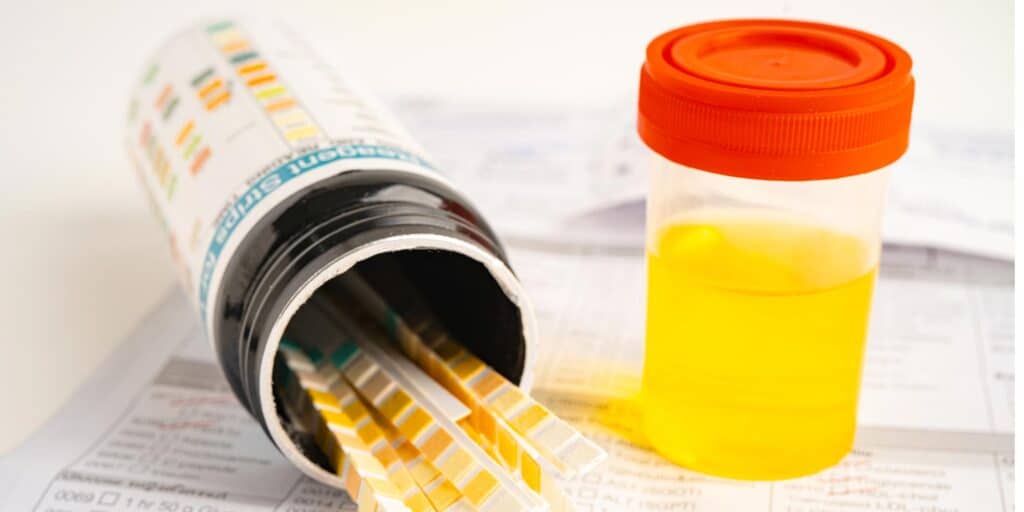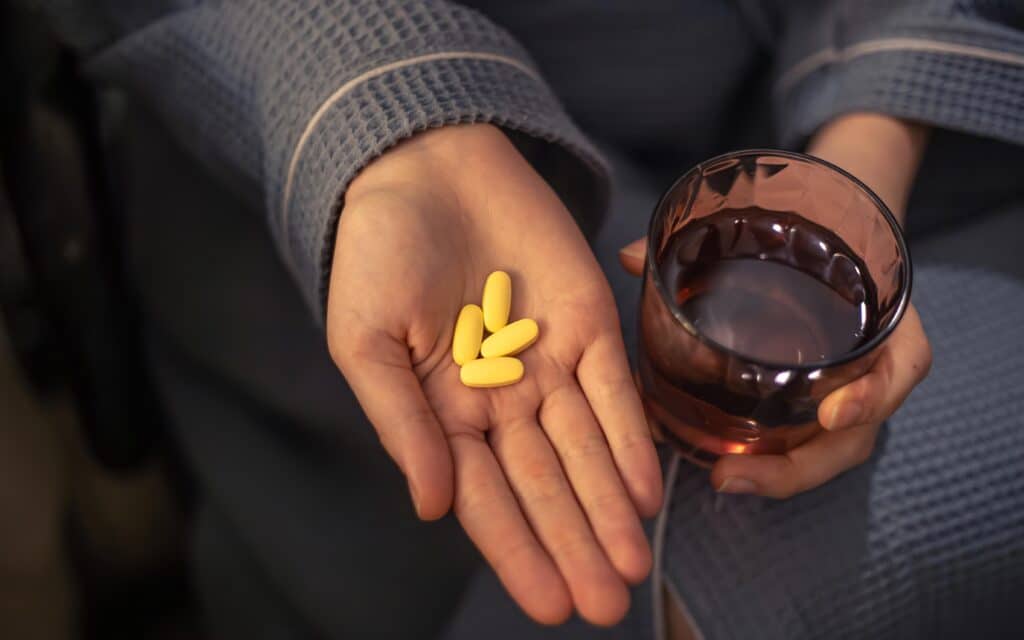Is Cyclobenzaprine Addictive? Understanding the Risks

Cyclobenzaprine is a commonly prescribed muscle relaxant to ease pain and discomfort from muscle spasms, sprains, strains, and injuries. Cyclobenzaprine is not viewed as addictive, unlike certain other classes of drugs, such as benzodiazepines.
Key Points
- Cyclobenzaprine is a skeletal muscle relaxant commonly prescribed to ease muscle pain and discomfort from muscle spasms, sprains, strains, and injuries in the short term.
- Cyclobenzaprine is not a physically addictive drug, but there have been reports of psychological addiction and abuse – particularly with other drugs.
- Cyclobenzaprine misuse or addiction can have serious risks, including overdose, serious side effects, mild withdrawal complications, and injuries from performing activities under the influence.
What Is Cyclobenzaprine?
Cyclobenzaprine is combined with physical therapy, rest, or other treatments to relax muscles and relieve pain and discomfort caused by muscle strains, sprains, and other injuries. It works as a central nervous system (CNS) depressant, slowing the brain activities in the CNS that can cause excessive muscle contractions and spasms.[1] The muscles are relaxed, relieving the pain associated with these issues.
Specifically, cyclobenzaprine acts on the brainstem of the central nervous system to promote relaxation by influencing noradrenergic pathways and reducing muscle spasms.
Though it was initially approved for use under Flexeril, that brand has since been discontinued.[2] Generic versions are still on the market. Long-term use of cyclobenzaprine is not necessary because the drug is intended to relieve acute muscle spasms in the short term rather than spasms that occur as a result of chronic painful musculoskeletal conditions.
Side Effects of Cyclobenzaprine
Like all drugs, cyclobenzaprine can cause side effects that may include:[3]
- Dry mouth
- Dizziness
- Fatigue
- Drowsiness
- Constipation
Some severe side effects have been reported, including:[4]
- Dangerously high or low blood pressure
- Fainting
- Liver problems
- Rapid heartbeat
- Abnormal heart rhythm
- Confusion
- Poor concentration
- Anaphylactic (allergic) reaction
Serotonin syndrome may occur if cyclobenzaprine is taken with certain prescription medications, such as antidepressants or other drugs that affect serotonin levels. This condition is life-threatening and may include symptoms like shivering, muscle rigidity, fever, seizures, and death.
Is Cyclobenzaprine Addictive?
Cyclobenzaprine is not a controlled substance under the Controlled Substances Act. However, the Drug Enforcement Administration (DEA) has reported misuse and abuse of cyclobenzaprine. In 2010, there were around 12,400 emergency room visits associated with cyclobenzaprine use or Flexeril addiction.[5]
Typically, cyclobenzaprine abuse occurs in combination with other drugs and alcohol to enhance euphoria or the relaxing effects. People may misuse the drug to gain feelings of intense sedation and relaxation.
Cyclobenzaprine is only intended for short-term use, typically two or three weeks. It’s not a long-term muscle relaxant used to treat conditions that involve persistent muscle spasticity, such as multiple sclerosis (MS), cerebral palsy, or amyotrophic lateral sclerosis (ALS).
Taking the drug for longer than intended can lead to tolerance, which is when you become used to the drug’s effects and need higher doses to get the same effect. Tolerance can build physical dependence, which is when the body becomes accustomed to the presence of the drug and needs it to function properly. If you stop taking it suddenly, you may experience withdrawal symptoms like headache, general malaise, and nausea.
Cyclobenzaprine Overdose

It’s possible to overdose on cyclobenzaprine, particularly with misuse or abuse. The most common symptoms of a cyclobenzaprine overdose include drowsiness and an elevated heart rate. Though less common, Flexeril overdose may include symptoms like:[6]
- Loss of bodily control
- Agitation
- Slurred speech
- Nausea
- Vomiting
- Seizures
- Chest pains
- Respiratory depression
- Confusion
- Dangerously high blood pressure
- Dangerously low blood pressure
- Coma
- Hallucinations
- Cardiac arrhythmia
- Cardiac arrest
If you suspect someone is overdosing on cyclobenzaprine or cyclobenzaprine and another drug, call 911 immediately. Stay with the person until help arrives.
Signs of Cyclobenzaprine Addiction
Cyclobenzaprine is a therapeutic drug used for specific medical conditions, so it’s often thought of as safe. However – like all drugs – there are risks with cyclobenzaprine that you need to be aware of. The addiction risk, while mild in comparison to other drugs, is still something to watch for.
Some of the signs of cyclobenzaprine abuse or addiction may include:[7]
- Taking higher doses or more frequent doses than prescribed
- Combining cyclobenzaprine with other drugs or alcohol
- Continuing to use cyclobenzaprine despite negative consequences
- Missing work, school, or social activities because of cyclobenzaprine use
- Taking cyclobenzaprine for reasons other than a medical condition
- Trying to quit cyclobenzaprine use without success
- Using cyclobenzaprine to come down from stimulants like amphetamines or cocaine
- Struggling in interpersonal relationships due to cyclobenzaprine use
- Getting into legal trouble because of cyclobenzaprine use
- Struggling financially because of cyclobenzaprine use
- Using cyclobenzaprine in situations that may be dangerous, such as driving a car while drowsy
There may be other signs that cyclobenzaprine use has become compulsive, such as sudden weight loss or gain, poor hygiene, mood swings, and sleep disturbances.
Getting Help for Cyclobenzaprine Abuse or Addiction
Cyclobenzaprine misuse has been documented, but true addiction is rare. There are unique factors to consider with cyclobenzaprine addiction, such as substance abuse history, other drugs that may be involved, and existing medical conditions.
Treatment for cyclobenzaprine addiction has to be individualized to ensure it’s effective – especially if multiple substances are involved or pain management is an issue.
If you’ve been taking cyclobenzaprine for longer periods or combining it with other drugs like alcohol or opioids, medical detox may be the best choice to manage withdrawal and prevent serious complications. This setting provides a 24/7 medical team to monitor your physical and mental health, address symptoms, and keep you safe and comfortable.
Once detox is complete, you can start an addiction treatment program on an inpatient or outpatient basis. Depending on the severity of your addiction and other substances involved, your addiction treatment may include a combination of medication, individual and group counseling, behavioral therapies, and peer support groups to address the emotional and social aspects of substance addiction.
Take Cyclobenzaprine Safely
Cyclobenzaprine is an effective skeletal muscle relaxant for pain that’s associated with muscle injuries in the short term. Though it’s not viewed as being an addictive drug like other muscle relaxers, misuse, abuse, and addiction have been reported. If you think you may be struggling with cyclobenzaprine addiction, it’s crucial to get addiction treatment as soon as possible to overcome your substance abuse and get on a healthier path.
Frequently Asked Questions About Cyclobenzaprine




